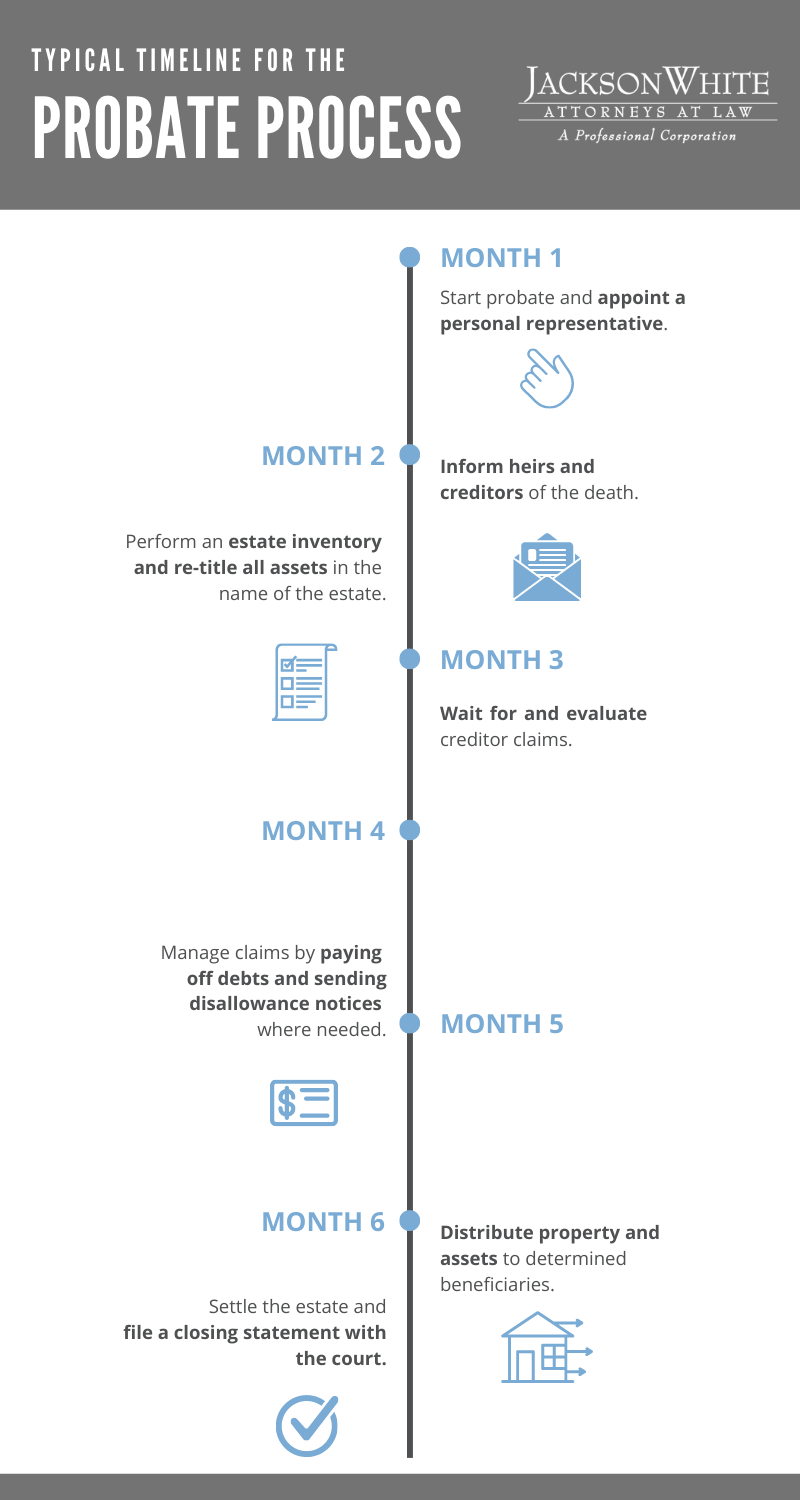Introduction
You probably know that creating a will is one of the best ways to ensure your last wishes are honored with regard to the disposition of property and assets, funeral planning, and more. However, you might not realize that writing a will can also save your loved ones time and money after you’re gone. In fact, those who pass on without a will (or intestate) often compel their beneficiaries to go through a lengthy and invasive probate process. If you want to expedite the probate process while minimizing the amount of time family members spend in court while they’re grieving, take time to ensure your will is in good order. Keep reading to learn more about probate and find out how long you can expect the process to take with and without a will in place.
Understanding Probate
In order to understand how long probate takes with and without a will, you need to know how probate works. A legal process, probate refers to the administration of an individual’s estate after they pass on. For those who die with a will and testament in place, the first step in the probate process is probably ensuring the will is legally valid. After this has been completed, the court can execute your instructions after first paying any taxes and fees.
While having a will doesn’t allow your family to avoid probate all together, it can make the process simpler and less stressful. Along with revealing who should inherit which property and assets, a well-written will can reveal your last wishes. On the other hand, those who die without a will in place are effectively leaving property distribution and other matters up to the probate court. Under these circumstances, assets will be distributed based on the state’s intestate law.
Probate costs vary depending on the type of case and how complex it is. However, court costs generally range from $200 to $250 with filing fees. More involved probate cases also come with higher lawyer fees. If you want to save your loved ones money, creating a clear and valid will is a good place to start.
Types of Probate
There are multiple forms of probate in the state of Arizona. Depending on the complexity of the case — and the size of your estate — your beneficiaries may be forced to wait for one of the following to occur:
Informal probate – The easiest and most basic option, informal probate occurs when there is a valid will that no one has challenged. In most cases, a representative will be appointed to administer the estate with little court supervision.
Formal probate – A more involved process, formal probate is employed to resolve legal issues with an estate. The court may mandate a formal probate in cases when the validity of a will is questioned or family members can’t agree on a personal representative.
Supervised probate – With this type of probate, the court supervises every step of the process and dictates what the personal representative can and can’t do. For example, individuals will need to get permission to pay creditors or distribute assets to beneficiaries. While any interested party can request a supervised probate, they’re most often required to protect creditors and inheritors.
What Are the Steps in a Probate Case?
Depending on the nature of an estate, the probate process can be long, invasive, and above all expensive. Here are the steps that occur when a will goes through probate:
- Start probate and appoint a personal representative.
- Inform heirs and creditors of the death.
- Perform an estate inventory and re-title all assets in the name of the estate.
- Manage claims by paying off debts and sending disallowance notices where needed.
- Distribute property and assets to determined beneficiaries.
- Settle the estate and file a closing statement.
How Long Does the Probate Process Take?
There’s no one answer to how long it takes an estate to pass through probate. The law requires that probates remain open for a minimum of four months, so creditors can request any money they’re owed. For uncontested and informal probate cases, you can expect the estate to be settled in six to eight months, assuming the personal representative completes their duties in a timely fashion. However, more complicated estates and those going through formal or supervised probate can take much longer to settle. In particular, probate can be slow or involved if the estate includes complex business interests, multiple income streams, or a large number of outstanding debts. While nine to 12 months is average, a probate case can take two years or more without legal assistance.
JacksonWhite Can Help
Probate can be a complicated process. Fortunately, the team at JacksonWhite Law is here to assist you. Get in touch with us today!
Call Our Probate Team at (480)467-4365 to discuss your case today.



